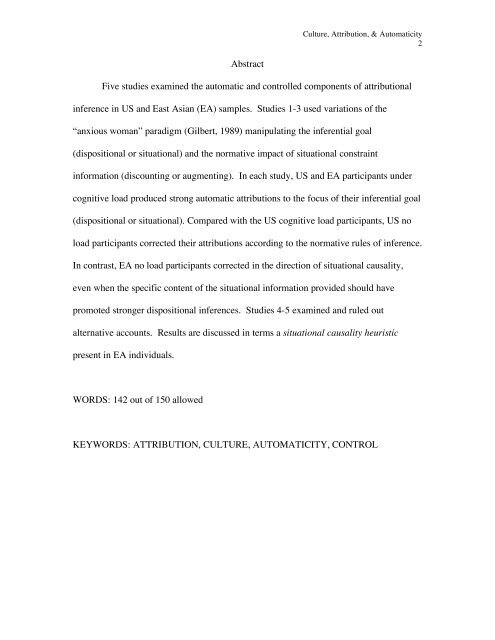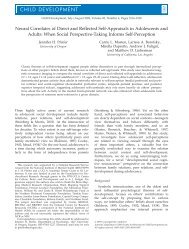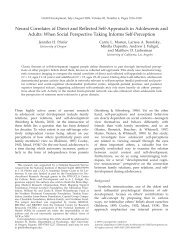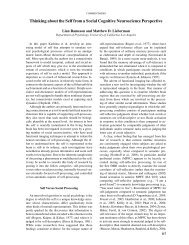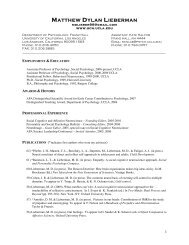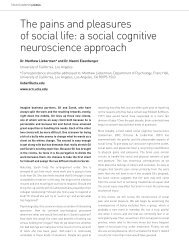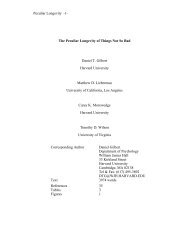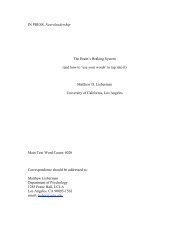In Progress – DO NOT CITE Attributional inference across cultures ...
In Progress – DO NOT CITE Attributional inference across cultures ...
In Progress – DO NOT CITE Attributional inference across cultures ...
Create successful ePaper yourself
Turn your PDF publications into a flip-book with our unique Google optimized e-Paper software.
Culture, Attribution, & Automaticity<br />
2<br />
Abstract<br />
Five studies examined the automatic and controlled components of attributional<br />
<strong>inference</strong> in US and East Asian (EA) samples. Studies 1-3 used variations of the<br />
“anxious woman” paradigm (Gilbert, 1989) manipulating the inferential goal<br />
(dispositional or situational) and the normative impact of situational constraint<br />
information (discounting or augmenting). <strong>In</strong> each study, US and EA participants under<br />
cognitive load produced strong automatic attributions to the focus of their inferential goal<br />
(dispositional or situational). Compared with the US cognitive load participants, US no<br />
load participants corrected their attributions according to the normative rules of <strong>inference</strong>.<br />
<strong>In</strong> contrast, EA no load participants corrected in the direction of situational causality,<br />
even when the specific content of the situational information provided should have<br />
promoted stronger dispositional <strong>inference</strong>s. Studies 4-5 examined and ruled out<br />
alternative accounts. Results are discussed in terms a situational causality heuristic<br />
present in EA individuals.<br />
WORDS: 142 out of 150 allowed<br />
KEYWORDS: ATTRIBUTION, CULTURE, AUTOMATICITY, CONTROL


